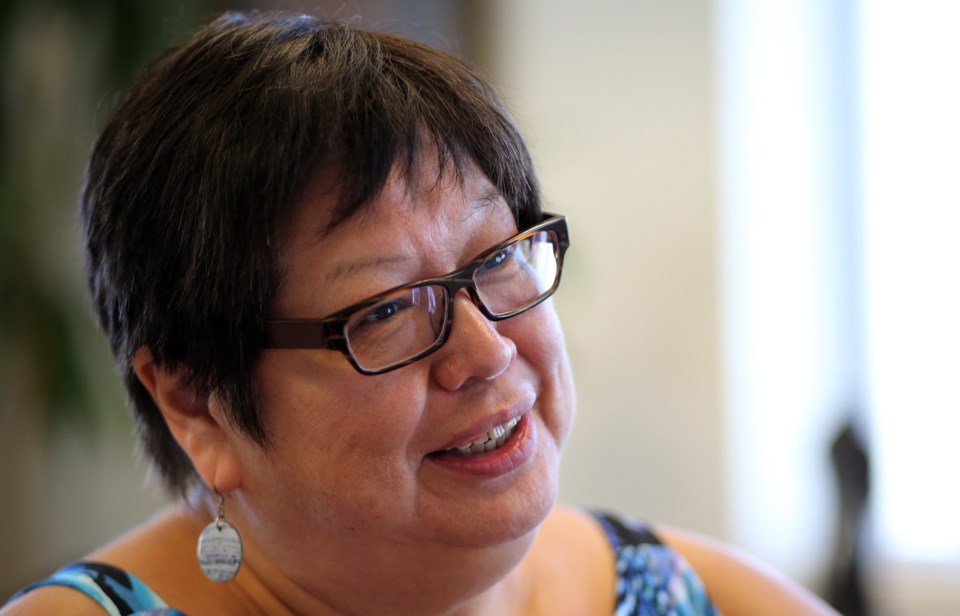A council representing First Nations communities along 300 kilometres of the west coast of Vancouver Island says its restrictions on visitors will remain in place until the province delivers on specific COVID-19 safety measures.
A week ago, the Nuu-Chah-Nulth Tribal Council, representing 14 First Nations from Brooks Peninsula to north of Port Renfrew, voted unanimously to restrict non-essential entry to its lands — including provincial and federal parks — unless several conditions around COVID-19 testing and screening are met.
Judith Sayers, president of the tribal council, said she hasn’t yet “heard a word” in response.
Sayers said she spoke with Indigenous Relations Minister Scott Fraser on Monday, and he might have spoken with some of the 14 First Nations within the Nuu-Chah-Nulth council, but he has not talked about the non-essential travel restrictions to the tribal council area as a whole. “He was going to look into it and get back to us.”
Barriers to entering Nuu-Chah-Nulth Tribal Council lands, which encompasses Tofino, could include everything from information stops to roadblocks, said Sayers.
Sayers sent a letter via email to B.C. Premier John Horgan on Tuesday, asking him to explain remarks he made last week to the effect there would be an “impasse” if the province’s plan to reopen domestic tourism runs up against plans to close communities.
“If he thinks there’s an impasse, how do we get through that?” Sayers said.
While Nuu-Chah-Nulth territories’ parks, beaches, and forests attract a lot of tourism, said Sayers, the tribal council directors have been clear that their members’ health is a higher priority than economics, and that the council’s focus is on protecting them, especially those who are most vulnerable.
The Nuu-Chah-Nulth directors say Nuu-chah-nulth Territories will remain restricted to residents and essential-service providers until four conditions are met, wrote Sayers, including:
• Timely and consistent testing, with residents of remote and Indigenous communities prioritized for testing
• Screening of non-residents seeking to enter the tribal council’s territories to ensure visitors don’t have symptoms, aren’t known to be infected, and have followed public-health orders and guidelines for 14 days prior to visiting Nuu-chah-nulth territories
• Contact-tracing measures to ensure that Nuu-Chah-Nulth territory residents receive prompt notification, support and testing if exposed to the virus
• Protocols between the Nuu-Chah-Nulth Nations and health authorities to ensure communication of relevant information about suspected and confirmed cases of COVID-19 in Vancouver Island communities, including Indigenous communities.
The province has announced about $70 million for rural, remote and Indigenous communities to improve health-care services and responses to the pandemic, including medical transfers to larger centres, housing for people needing to self-isolate, new and faster COVID-19 testing technology, culturally safe contact tracing, access to a virtual doctor, accommodations near larger centres with more medical services, and increased mental-health services.
During his weekly media availability on Wednesday, Horgan said the government is “ready, willing and able to talk to the tribal council about any issues they want to.”
Horgan noted that as an MLA, he represents Port Renfrew, which is also Nuu-Chah-Nulth territory, and the Pacheedaht peoples there were not consulted about any ban on travel in their territory by the tribal council. “So certainly Port Renfrew, which has a significant Indigenous population, was not participating in any of these discussions.”
The Pacheedaht First Nation on the southern border of the Nuu-Chah-Nulth territory is Nuu-Chah-Nulth by culture and language, but is not a member of the Nuu-Chah-Nulth Tribal Council.
The 14 First Nations within the tribal council can decide individually how they want to respond to the province’s upcoming move to Phase 3 of its restart plan, which is expected to open up travel around the province, Sayers said.
It will be up to each Nuu-Chah-Nulth Nation to determine that all conditions are fulfilled prior to the opening of any recreational or other non-essential economic operations, she said.
Horgan said he has “every confidence” that any information the Nuu-Chah-Nulth want is readily available to them. “They just need to ask,” he said. “I’m sure Minister Fraser is enabling that to happen right now.”
Vancouver Island hasn’t had a new COVID-19 case since May 8.
“It has been over a month since there has been a case on Vancouver Island,” said Horgan. “That would include, of course, Nuu-Chah-Nulth territory.”



